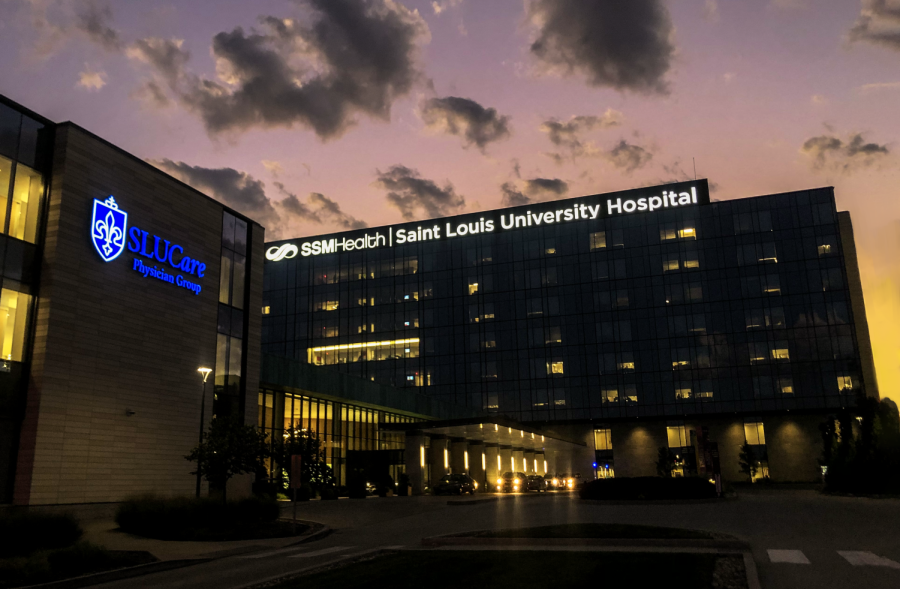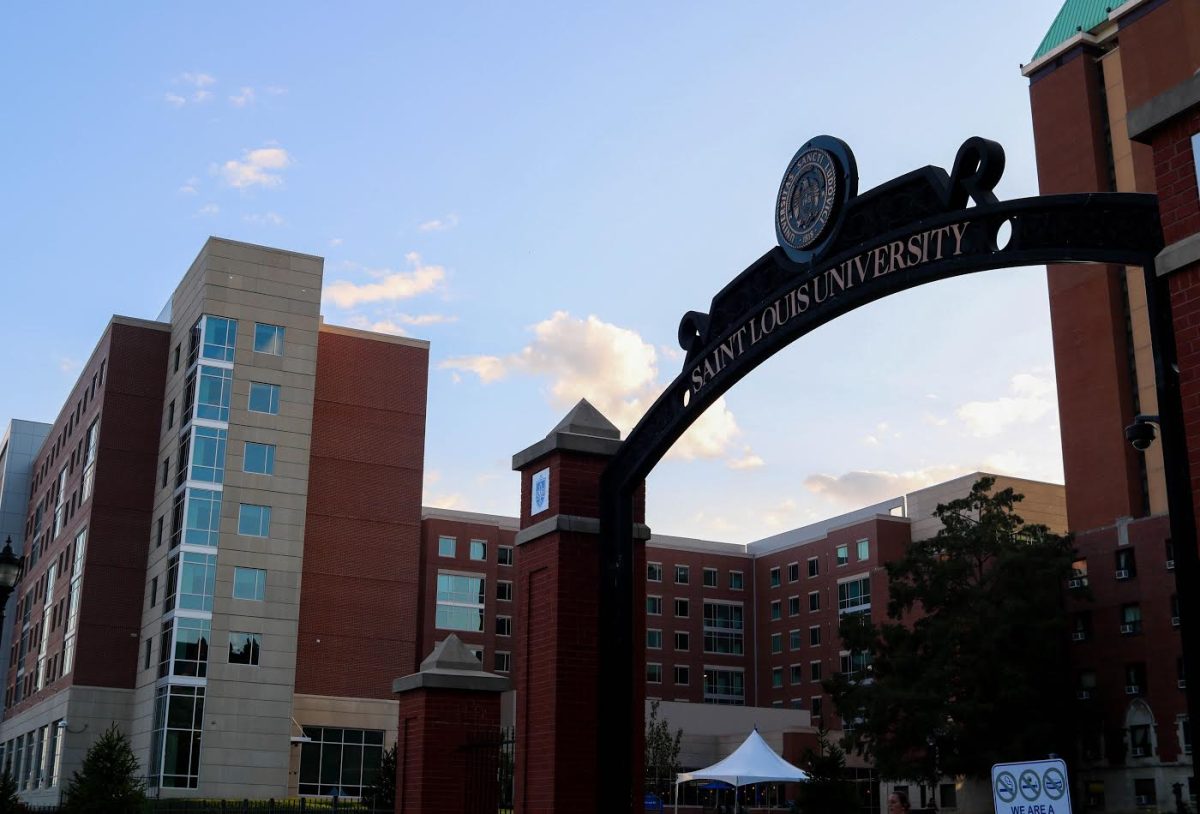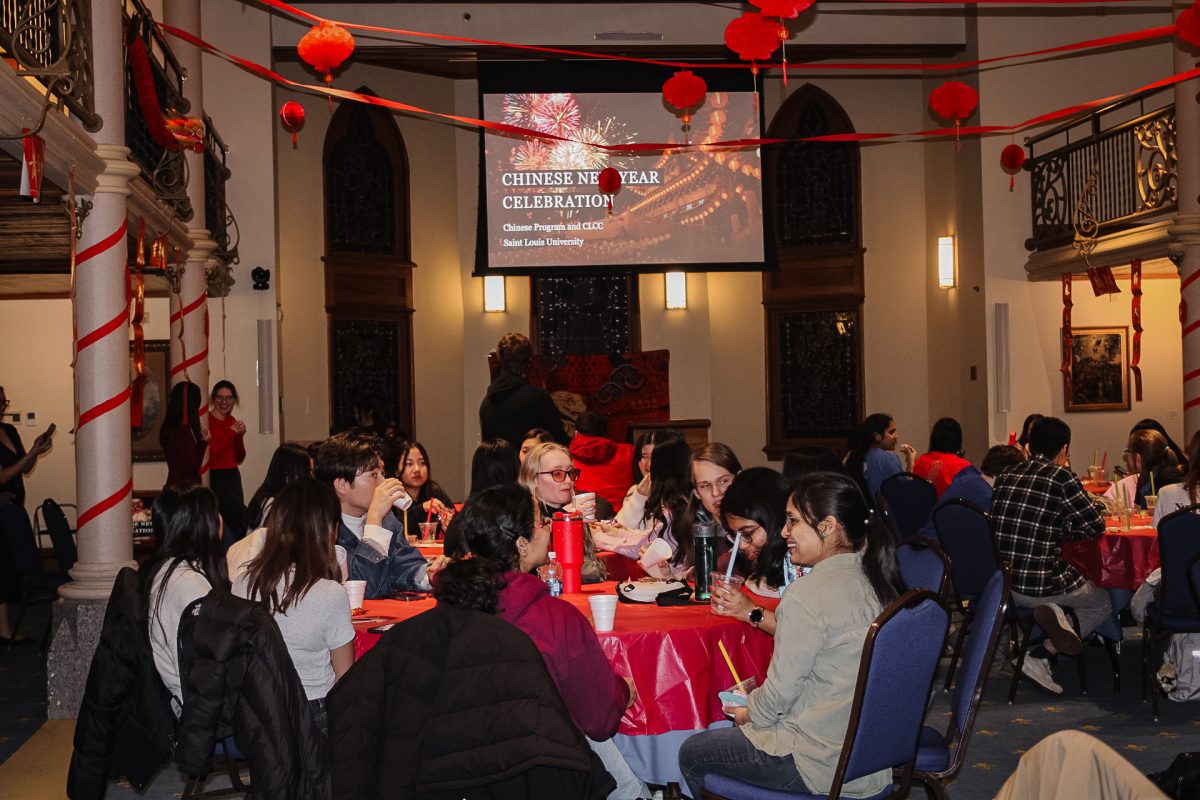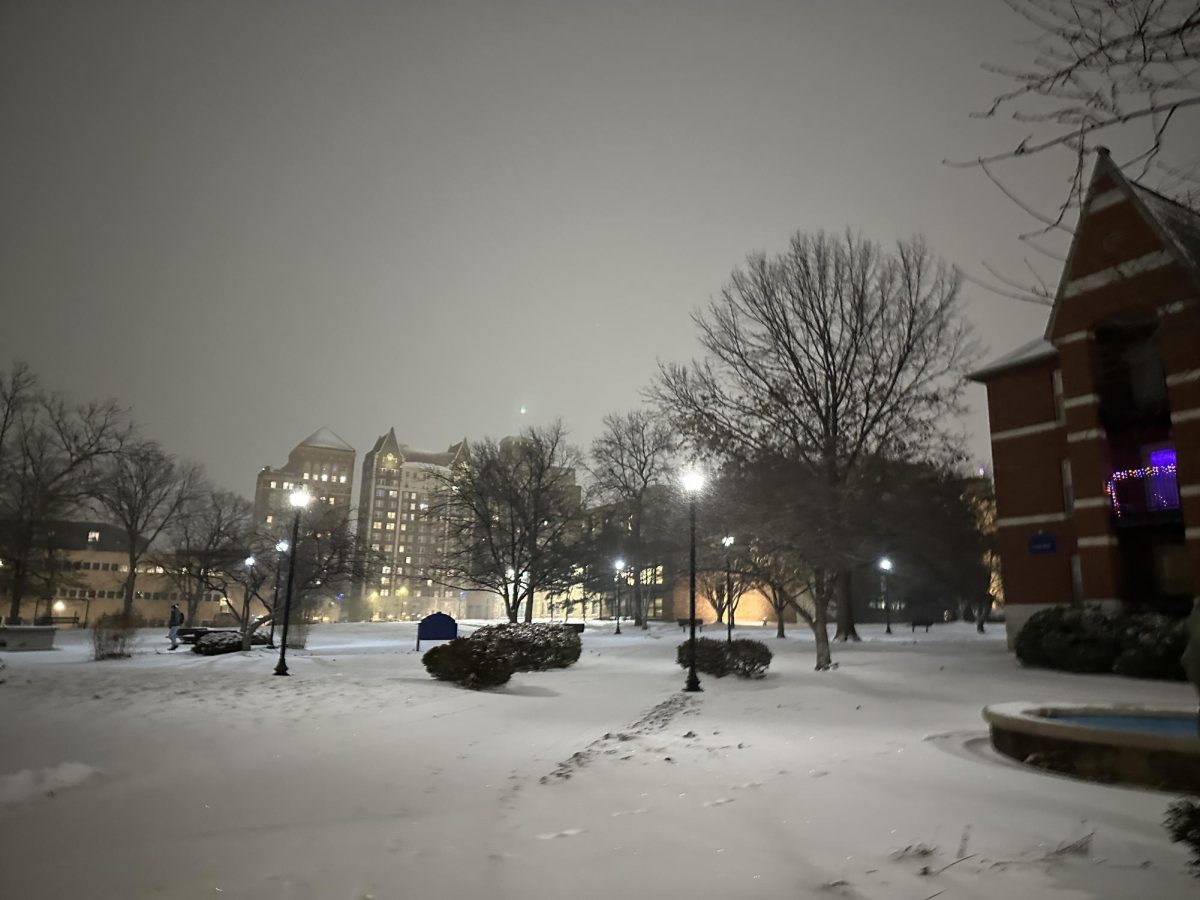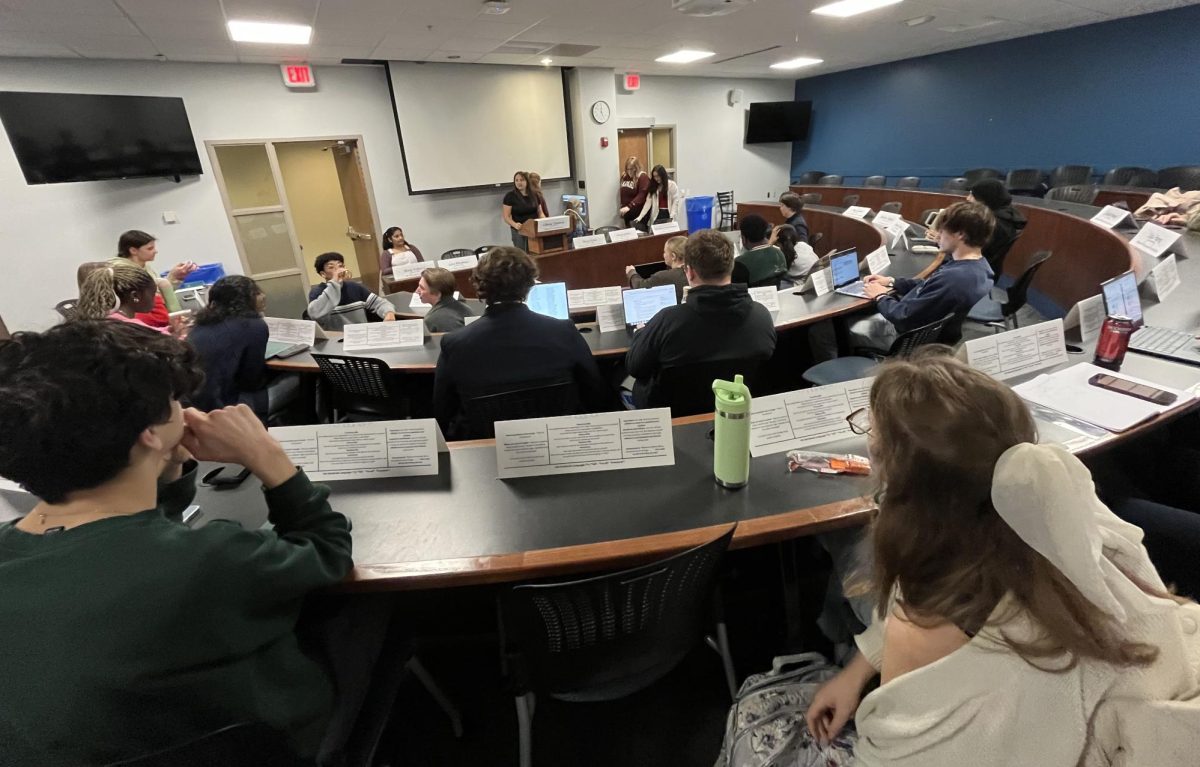After voting to authorize a strike over Labor Day weekend, Saint Louis University Hospital nurses have yet to reach an agreement regarding a new contract with SSM Health.
SLU Hospital nurses’ previous contract expired in June and their bargaining team began negotiations for a new contract in May. Nurses have been facing staffing shortages and poor workplace conditions, which have affected overall hospital functions.
Sarah DeWilde, a SLU Hospital nurse representative for National Nurses United, said she and her co-workers are not being heard by SSM Health regarding key issues including staffing shortages, workplace violence and wages.
Staffing shortages lead to an inconsistency of care, DeWilde said. SLU Hospital currently employs many travel nurses who take temporary positions and move from hospital to hospital depending on need.
DeWilde said it can be difficult to provide the best care for every patient with a lack of permanent nurses, since a travel nurse or other temporary nurses may not know the intricacies of caring for a certain patient.
“We have an abundance of travel nurses,” Dewilde said. “As a patient, you’re more likely to get a travel nurse. You’re more likely to have a different nurse every day.”
Jessica Tulk, another member of the nurses’ bargaining team, sees the importance of relationship building with nurses and their patients.
“There is something to be said of having somebody taking care of you who is familiar with you and what’s going to happen,” Tulk said. “They can be there for you and comfort you.”
Several hospital floors are rarely fully staffed with permanent nurses, leaving nurses scrambling to ensure that patients are stable and cared for.
“We find a way to pick up the slack,” Tulk said. “Whether that’s we don’t take a lunch, we don’t go to the bathroom, we don’t drink our beverages, or even fill up our water more than one time a day.”
With reduced staff comes longer wait times for patients and fewer permanent nurses who know the details of each and every patient, which can lead to frustrated patients. Sometimes, that leads to outbursts of violence that endanger nurses and other patients, DeWilde said.
DeWilde recalls an instance where an upset patient chased a nurse with a heavy-duty stapler, forcing her and the other nurses to hide in an inpatient room. Afterward, DeWilde said management did little to nothing, and such instances remain common.
“I have had members of my floor tell me they feel anxiety before every shift because of potential violence,” Tulk said. “And they have talked to their managers and their managers have yet to do anything about it. We feel like it’s time to take it to the next step in asking for some protection.”
DeWilde and others want to see specific language in their new contract about workplace violence since she and others have been disappointed with how hospital management has responded to these situations.
Impacts on SLU Hospital as a teaching hospital
Since SLU Hospital is a teaching hospital, staffing shortages are also impacting their ability to teach students.
Grace Wempe, a SLU nursing student, is an extern at SLU Hospital. She is not fully licensed but is employed by the hospital to shadow a nurse.
Although Wempe has not been regularly paired with a travel nurse, she recognizes the challenges of a hospital over-relying on travel nurses.
“From a student nursing experience, whether that be at SLU or other hospitals, it is different working with a traveler,” Wempe said. “Sometimes they don’t know the policies and sometimes hospitals are very specific about certain things. If you’re being expected to abide by hospital policy and the nurse you’re working with isn’t really sure about it, it’s kind of awkward.”
As a paid extern, Wempe is part of the union and would be included in a strike, whereas students completing nursing clinicals are not. However, even clinical students may feel the impact of the staffing shortage.
“If you’re a student coming in and doing clinicals, you’re more likely to have a traveler,” Tulk said. “And if you think of it more on a simple level, you’re not going to retain as much information if you walk into a floor that is pure chaos than you can if you actually sit down with somebody who has time to explain things.”
Due to low staffing, nurses deal with frustrated patients and families more than ever.
“Something else that I think is important to note is that staffing shortages directly correlate with staff safety,” Wempe said. “Patients and family members that are in the emergency room, if there’s an exceedingly long amount of time that they have to wait, then they’ll obviously and understandably get really frustrated and angry. And that will be taken out on the nurses.”
Hopes to avoid a strike
As of Thursday, Sept. 7, the nurses and SSM Health had not yet reached an agreement on the new contract. They have another meeting scheduled for Wednesday, Sept. 13.
At the end of the day, DeWilde and other SLU Hospital nurses just want what is best for their staff and patients
“We’re still hoping to avoid a strike,” Tulk said. “That is not the goal. We don’t want to have to put our feet down this strongly, but if they refuse to bargain, then we will.”
They simply want SSM Health to listen and help create a contract that will do that. If that does not happen, then a strike may be in the future.
“I am always hopeful that they’ll do the right thing,” DeWilde said. “But at the end of the day, I can only control myself. So I’m going to keep doing what I can to get this contract done, which is show up on time, be here and be ready for whenever they want to talk to us and keep my nurses informed with what happens.”
The University News has reached out to SSM Health for a statement and has not heard back.


